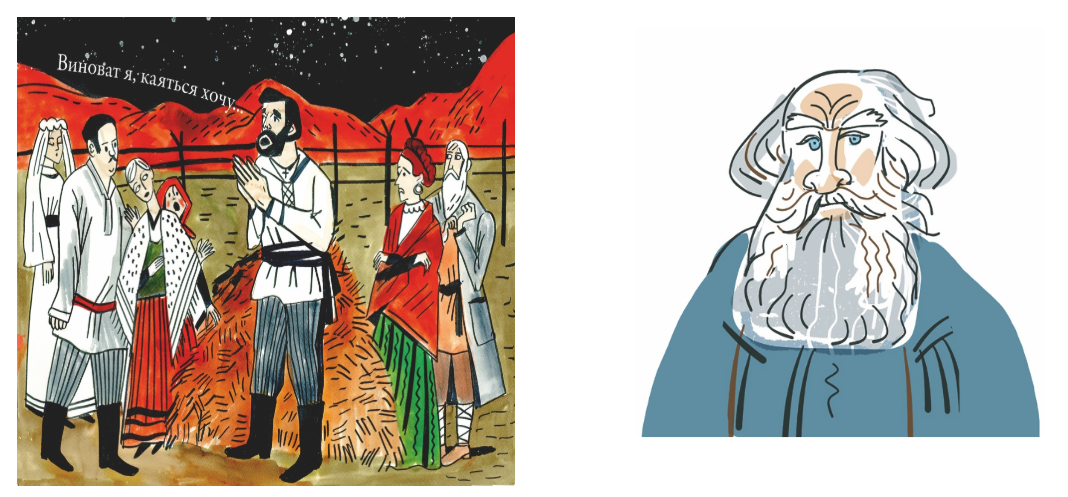"The Power of Darkness" (1886)

The Power of Darkness by Lev Tolstoy
In The Power of Darkness, Tolstoy offers a philosophical and moral examination of crime and punishment through the lens of folk drama. The writer learned of this horrific story about peasant Yefrem Koloskov’s family from his close friend Nikolai Davydov, a Tula prosecutor. This real-life incident became the basis for the author’s first major dramatic work. ‘The Power of Darkness’ is a story of dark passion, adultery, permissiveness, cruelty, longing for forgiveness and redemption.
Nikita serves a wealthy man Pyotr, but his thoughts are occupied by his master’s wife—Anisya, who decides to poison her lawful husband. Yet Nikita soon shifts his attention to his lover’s stepdaughter. Even after marrying Anisya, he heedlessly continues the affair. This new obsession produces an unwanted child that disgusts both parents. Nikita’s mother and wife conspire to eliminate the infant, coercing the young man into committing cold-blooded murder. As the power of darkness wanes, Nikita craves confession and seeks absolution for his crimes.
The reader is confronted with a reality where the darkness of evil requires no special atmosphere, extraordinary circumstances, or inherently wicked characters. Crimes emerge from the simple selfishness of ordinary people.
Nikita becomes a wealthy householder through his marriage to the widow. Inheritance practices among peasant families followed vague legal norms that varied significantly by region. Under contemporary law, Peter's daughters would have been his legal heirs, while his widow would have received the property as a life estate or for management purposes. From the perspective of Russia's modern Civil Code, both the spouse and daughters would typically be recognized as heirs, with the daughters' property rights afforded stronger protection.
Under the Code of Criminal and Correctional Punishments of 1885, Anisya's actions would fall under Article 1451, which mandated deprivation of all property rights and indefinite hard labor (katorga) for the premeditated murder of a spouse. In Tolstoy's drama, this premeditated spousal murder was conspired with Nikita's mother, Matryona. As the young man failed to report the crime, he could have been charged as an accomplice.
The modern Criminal Code of the Russian Federation classifies such acts under Part 2, Article 105, covering intentional homicide committed by a group in premeditated collusion for mercenary motives. This crime carries either imprisonment for up to twenty years or a life sentence."
A profound melancholy—a spiritual death—becomes the tragic companion of these characters. «Folk Thought» and «Family Thought» in this work of Tolstoy receive a new interpretation.
The people become a huge painful organism, filled with vices and sins of modernity.
True Tolstoy heroes gravitate towards the light of truth, are conscientious, have moral ideas and are free from vicious greed. Akim, the father of Nikita, becomes a rational man in the drama, a nonchalant, God-fearing man, completely deprived of the gift of eloquence. Surprisingly, it is the most simple and inconspicuous hero who has to play the main role in the spiritual resurrection of the unlucky son: the conscience begins to resist evil.
Signs and Symbols in the Illustration
Inheritance and Criminal Law in Late 19th-Century Russia